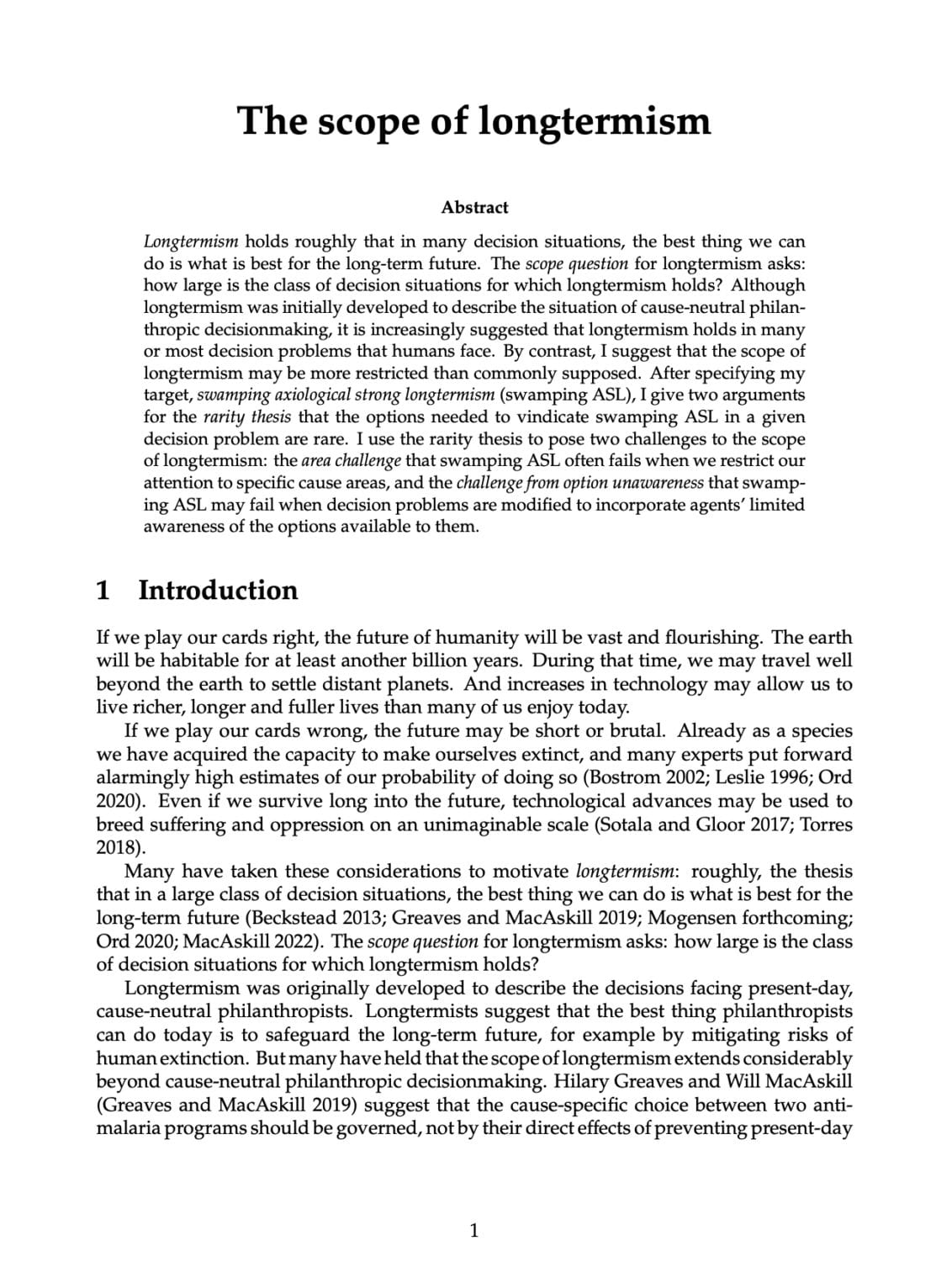The scope of longtermism
David Thorstad (Global Priorities Institute, University of Oxford)
GPI Working Paper No. 6-2021
Longtermism holds roughly that in many decision situations, the best thing we can do is what is best for the long-term future. The scope question for longtermism asks: how large is the class of decision situations for which longtermism holds? Although longtermism was initially developed to describe the situation of cause-neutral philanthropic decisionmaking, it is increasingly suggested that longtermism holds in many or most decision problems that humans face. By contrast, I suggest that the scope of longtermism may be more restricted than commonly supposed. After specifying my target, swamping axiological strong longtermism (swamping ASL), I give two arguments for the rarity thesis that the options needed to vindicate swamping ASL in a given decision problem are rare. I use the rarity thesis to pose two challenges to the scope of longtermism: the area challenge that swamping ASL often fails when we restrict our attention to specific cause areas, and the challenge from option unawareness that swamping ASL may fail when decision problems are modified to incorporate agents’ limited awareness of the options available to them.
Other working papers
In defence of fanaticism – Hayden Wilkinson (Australian National University)
Consider a decision between: 1) a certainty of a moderately good outcome, such as one additional life saved; 2) a lottery which probably gives a worse outcome, but has a tiny probability of a far better outcome (perhaps trillions of blissful lives created). Which is morally better? Expected value theory (with a plausible axiology) judges (2) as better, no matter how tiny its probability of success. But this seems fanatical. So we may be tempted to abandon expected value theory…
A paradox for tiny probabilities and enormous values – Nick Beckstead (Open Philanthropy Project) and Teruji Thomas (Global Priorities Institute, Oxford University)
We show that every theory of the value of uncertain prospects must have one of three unpalatable properties. Reckless theories recommend risking arbitrarily great gains at arbitrarily long odds for the sake of enormous potential; timid theories recommend passing up arbitrarily great gains to prevent a tiny increase in risk; nontransitive theories deny the principle that, if A is better than B and B is better than C, then A must be better than C.
Should longtermists recommend hastening extinction rather than delaying it? – Richard Pettigrew (University of Bristol)
Longtermism is the view that the most urgent global priorities, and those to which we should devote the largest portion of our current resources, are those that focus on ensuring a long future for humanity, and perhaps sentient or intelligent life more generally, and improving the quality of those lives in that long future. The central argument for this conclusion is that, given a fixed amount of are source that we are able to devote to global priorities, the longtermist’s favoured interventions have…

